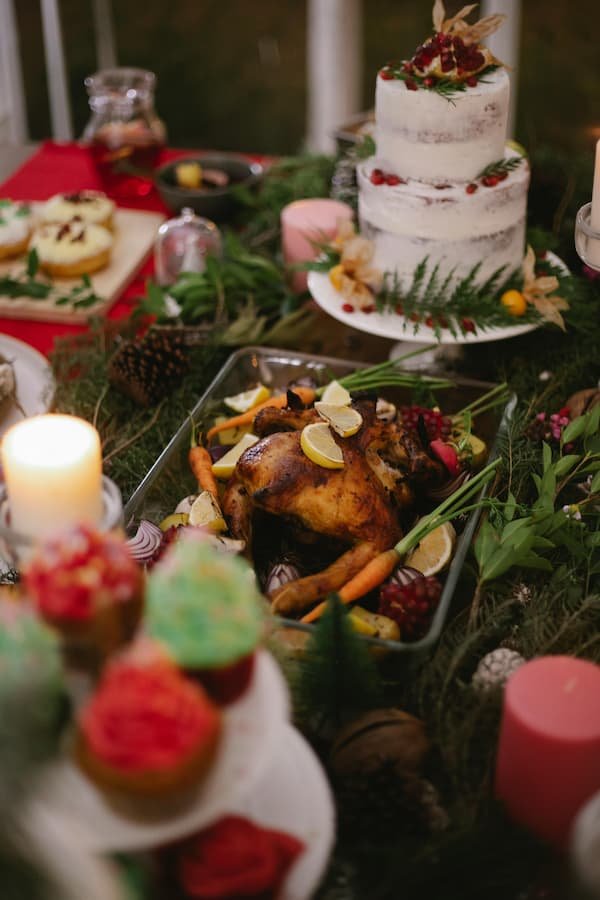How to Survive the Holidays with Binge Eating Disorder
The holiday season is often seen as a time of joy, celebration, and indulgence. However, for individuals living with binge eating disorder (BED), this time of year can feel overwhelming. The pressure to enjoy festive meals, navigate social gatherings, and deal with triggers around food can intensify feelings of stress, shame, and loss of control. But with the right tools and mindset, it's possible to manage the holidays in a healthier, more balanced way. Here are some strategies to help you survive (and even thrive) during the holiday season while managing binge eating disorder.
Here are some strategies to help you survive (and even thrive)
1. Set Realistic Expectations
The holidays are often synonymous with indulgence. There’s a constant message in the media and among family traditions that you should "treat yourself" or "eat, drink, and be merry." While it's fine to enjoy some indulgence, it's important to acknowledge that these expectations can be triggering for someone with BED. The first step is setting realistic expectations for yourself. You don’t need to “participate” in every food-related tradition if it feels overwhelming. Give yourself permission to take a step back and prioritize your mental health over social norms.
Tip: If you're invited to a holiday meal or party, remind yourself that one event is not an excuse to overeat. Set boundaries for yourself ahead of time (e.g., "I will only have one plate of food" or "I will eat slowly and check in with myself every 15 minutes").
2. Develop a Pre-Holiday Plan
Preparation is key when managing any mental health challenge, and the holidays are no different. Before the festivities begin, take time to develop a strategy that works for you. This could include setting goals for how to handle certain situations (like an office party or family gathering), identifying triggers (stress, family dynamics, specific foods), and planning ways to cope with those triggers.
Tip: If you know that certain foods or environments make you feel anxious, plan to bring a dish you enjoy or can eat in moderation. You could also prepare a self-care activity (like a walk or breathing exercise) to use if you feel overwhelmed.
3. Practice Mindful Eating
Mindful eating is the practice of slowing down and being fully present with your food. It involves paying attention to how food looks, smells, and tastes, as well as how it makes you feel physically and emotionally. During the holidays, when food is often abundant and tempting, practicing mindful eating can help you tune into your body’s hunger and fullness cues, preventing the loss of control that can lead to a binge.
Tip: Before you start eating, take a few deep breaths. As you eat, savor each bite and check in with yourself periodically. Are you still hungry? Are you satisfied? By being more mindful, you can often enjoy the experience without overdoing it.
4. Seek Support
The holidays can be isolating, especially for someone with BED, as the disorder often thrives in secrecy and shame. However, you don’t have to face the season alone. Whether it’s a therapist, a support group, or a trusted friend, having someone to talk to can help alleviate anxiety and prevent feelings of isolation.
Tip: Schedule regular check-ins with a therapist or support group during the holidays. You can also reach out to a close friend or family member for emotional support if you're feeling overwhelmed. Sharing your challenges with someone you trust can make a big difference.
5. Create Non-Food Traditions
Often, the holidays are centered around food, but they don’t have to be. Take the opportunity to create new traditions that don’t involve eating. Whether it's taking a walk to see Christmas lights, playing board games, or volunteering, non-food activities can give you a sense of joy and connection without the pressure of eating.
Tip: Find one or two holiday activities you can look forward to that aren't centered around food. Engaging in other traditions can help take your focus off eating and foster a deeper sense of fulfillment.
6. Be Kind to Yourself
The holidays may not go perfectly, and there may be times when you feel overwhelmed or have a setback. It’s important to remember that managing BED is a journey, and the holidays are no exception. Be kind to yourself if things don’t go as planned. Self-compassion is a critical part of healing, and beating yourself up will only make things harder.
Tip: If you do slip into old behaviors, acknowledge it without judgment and move forward. Practice self-forgiveness, and remind yourself that it’s okay to take things one step at a time.
7. Stay Active
Exercise doesn’t have to be a way to compensate for eating, but staying active during the holidays can help you manage stress, improve your mood, and feel more in control. You don’t need to commit to a strict exercise regimen—simply walking, dancing, or doing yoga can boost your mental and physical well-being.
Tip: Consider making physical activity part of your holiday routine. Go for a walk with family after a meal or join a local holiday fitness class. This can help you feel better and more grounded during a season that can feel chaotic.
Final Thoughts
Surviving the holidays with binge eating disorder is challenging, but it is possible with a combination of preparation, self-compassion, and support. By setting realistic expectations, practicing mindful eating, and focusing on non-food traditions, you can create a holiday season that supports your mental health and well-being. And remember, it's okay to seek help and lean on others for support during this time. You deserve to enjoy the season in a way that feels healthy and fulfilling for you.

